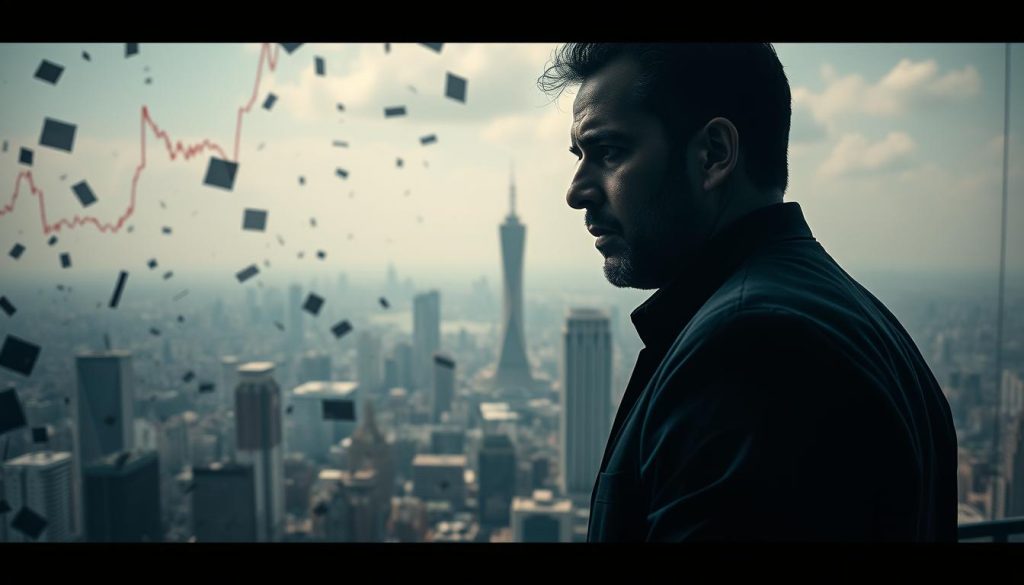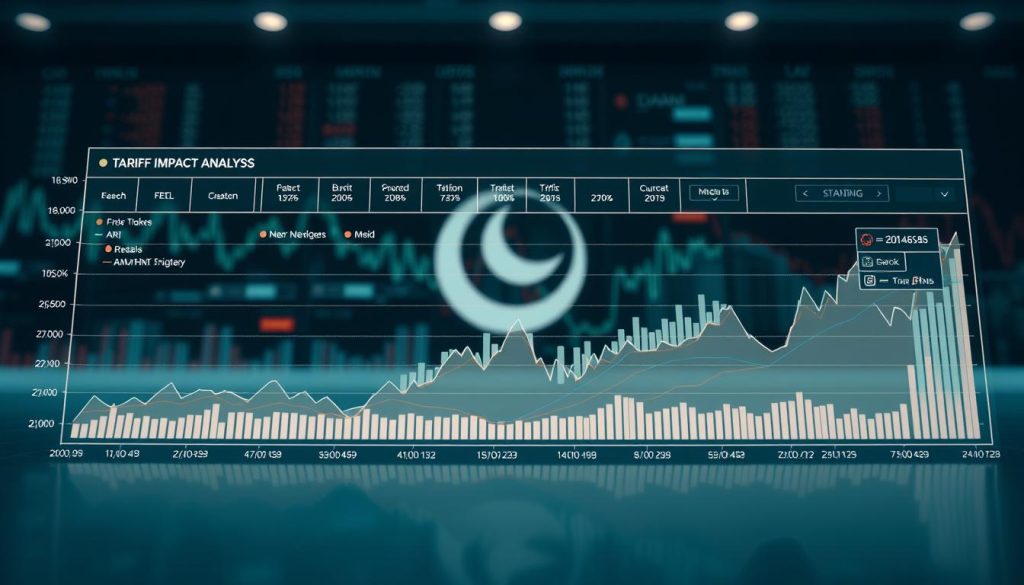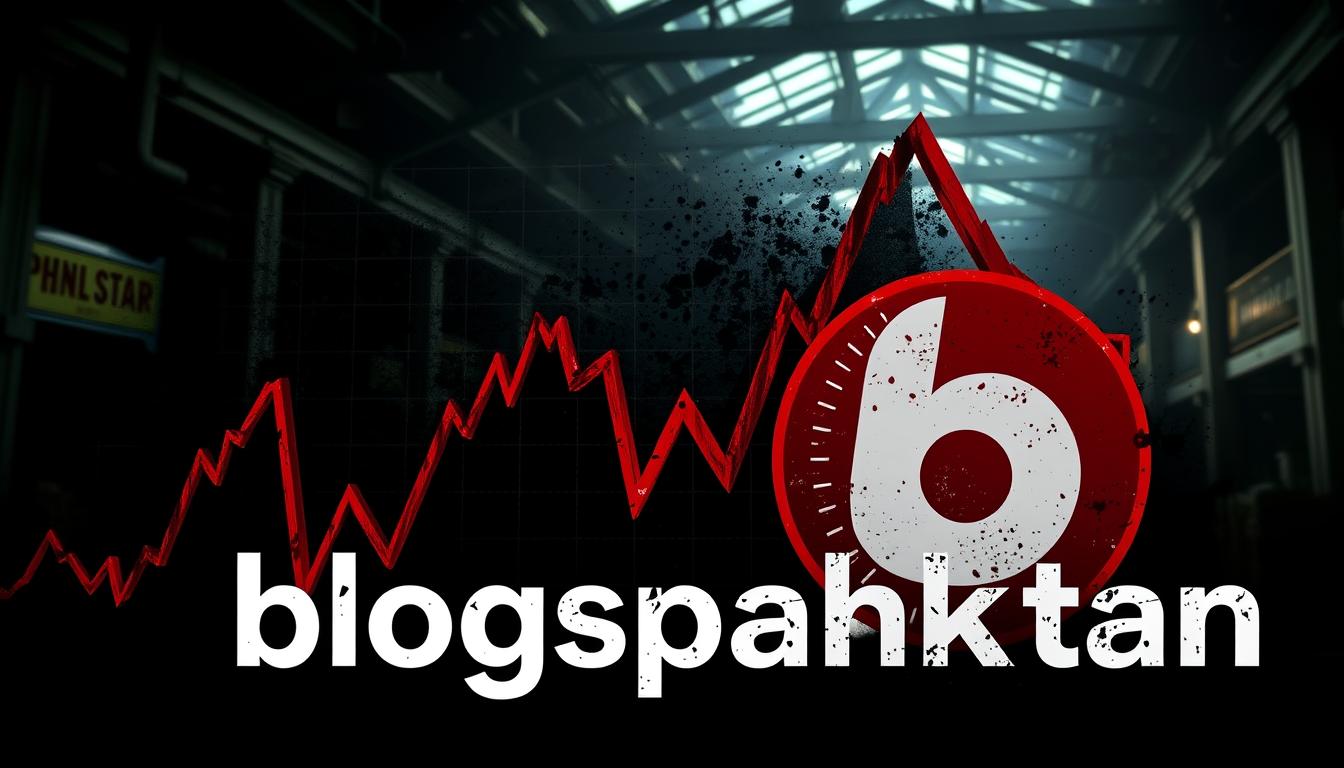The Pakistan Stock Exchange (PSX) fell over 3,300 points on a day known as “Black Monday.” This huge drop came after the U.S. introduced tariffs under the Trump administration. It caused panic among investors, showing how global trade policies can affect financial stability.
Black Monday : Economists say the tariff news was a big factor. It made people worry more about inflation and global tensions. The PSX crash is now a key topic in talks about how trade decisions affect stock markets around the world.
Key Takeaways
- Black Monday : PSX crash marked its largest single-day loss in years.
- Tariffs triggered uncertainty, pushing investors to sell off stocks.
- Global markets watched the event closely, highlighting Pakistan’s economic vulnerabilities.
- Analysts warn of long-term impacts on trade relations and investor confidence.
- Government responses and future policies may shape recovery efforts.
The Financial Backdrop to Black Monday
Before Black Monday, global market trends showed signs of trouble. Trade wars, slow growth in big economies, and inflation were all causing worries. Investors saw big changes in major stock indexes, showing deep economic fears.
Overview of Global Market Trends
Trade wars were all over the news, with countries putting up barriers. The IMF said global growth slowdown could cut trade by 0.5% each year. These issues set the stage for what was to come:
| Factor | Impact |
|---|---|
| Rising tariffs | Increased production costs |
| Oil price swings | Energy sector instability |
| China-US trade war | Supply chain disruptions |
Impact on U.S. Financial Markets
U.S. markets were hit hard too. The S&P 500 plummeted with tariff news. Here’s how different sectors did:
- Manufacturing stocks fell 8% in two weeks
- Tech firms saw reduced export forecasts
- Energy companies faced uncertainty over trade routes
“Trade disputes are now the top risk to global market trends,” said Federal Reserve Chair Powell in September 2023.
These problems came together like a storm. Experts said uncertainty about tariffs made investors lose trust, leading to the big drop.
Insights on PSX Crash: What Went Wrong
Experts look into what caused the stock market to drop on Black Monday. The PSX fell by 3,300 points, not by chance. It was due to changes in policy and how investors acted.

- Unexpected Tariff Timing: Trump’s sudden tariff announcement disrupted trading patterns.
- Panic Selling: Investors rushed to sell, creating a feedback loop.
- Technical Failures: Trading platforms struggled under heavy volume, worsening volatility.
| Factor | Description | Impact |
|---|---|---|
| Tariff Announcement | Uncertainty over trade policy | Immediate sell-off |
| Investor Fear | Mass exodus from stocks | Accelerated stock market decline |
| System Overload | Slowed trade processing | Prolonged volatility |
Market analysts say fear and automation hurt traders. Automated systems made more sell orders when prices fell, making the decline worse. Now, regulators want exchanges to test their systems for such scenarios.
Friendly Analysis: Tariffs, Investor Reactions, and Future Outlook
The tariff impact on global markets shows how trade policies affect the economy. Tariffs bring uncertainty, squeezing profits and slowing trade. Let’s look at the main factors.
Understanding the Role of Tariffs

Tariffs are like a tax on goods, raising prices for businesses and consumers. For example, U.S.-China trade tensions in 2019 disrupted supply chains. This hurt automakers and tech firms.
Experts say long disputes could shrink GDP growth by 0.5% or more.
“Black Monday: Tariffs aren’t just about borders—they’re a pressure test for global supply chains,” said economist Linda Carter.
Investor Sentiment and Market Response
- Stocks in tariff-affected sectors like manufacturing dropped sharply.
- Bond yields fell as investors moved funds to safer assets.
- Market volatility spiked, with traders citing “policy uncertainty” as a top risk.
Projections for Future Market Movements
- Negotiation phases : Markets may stabilize if trade deals reduce tensions.
- Corporate adaptation: Companies may relocate suppliers to avoid tariffs, reshaping industries.
- Consumer spending: Higher prices could slow retail sales, impacting sectors like retail and tech.
While uncertainty lingers, experts urge investors to focus on long-term trends. Staying informed about trade policies is crucial for navigating these challenges.
Conclusion – Black Monday
Black Monday showed how trade policies can shake the market. Tariffs made investors worry about the economy’s future. This led to a big drop in the PSX, showing how fast things can change.
Now, markets are trying to find a balance between uncertainty and getting back on track. Experts say that how investors feel will affect short-term moves. But, solving trade issues is crucial for long-term success.
It’s important to keep an eye on how investors feel as things get better. Investors should watch policy changes and market signs. Even though there are still challenges, learning from this crisis helps make better decisions in tough times.










